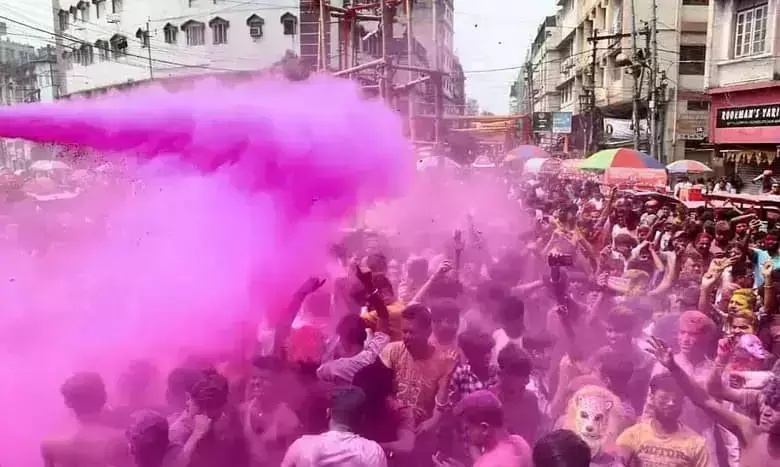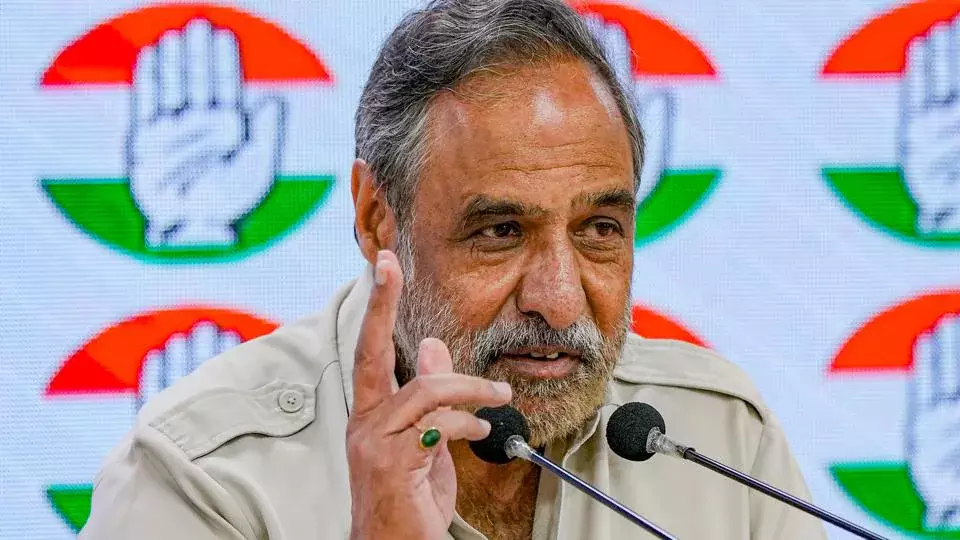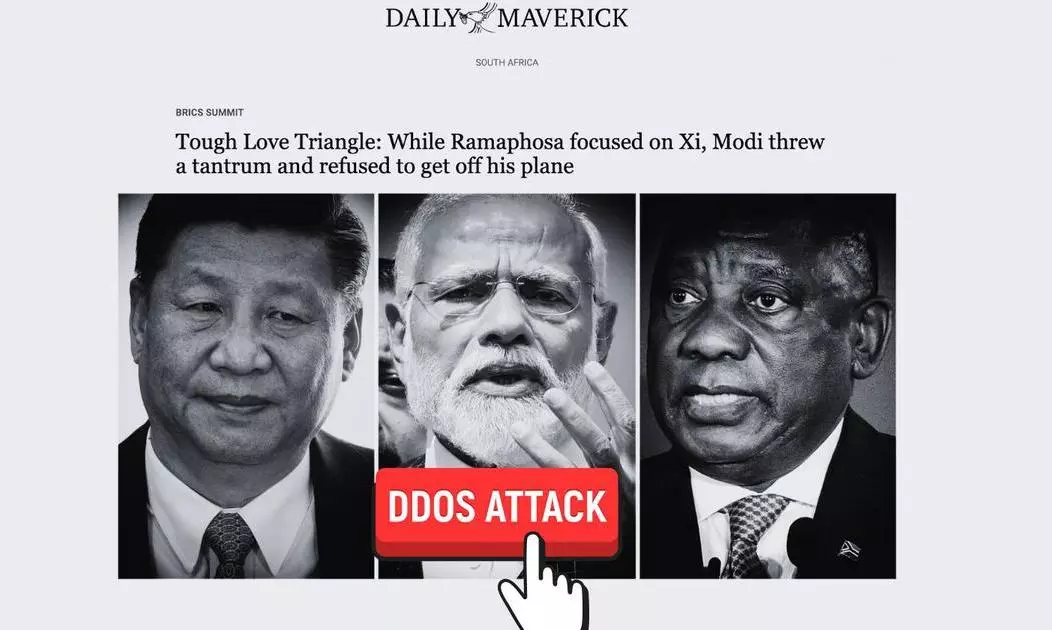
Website claims cyber-attack from India over report critical on PM Modi’s behaviour for not getting due reception in South Africa
text_fieldsJohannesburg: An article reporting Prime Minister Narendra Modi's alleged refusal to disembark from the plane in protest against not receiving the expected reception upon his arrival in South Africa for the BRICS summit, led to a significant cyber-attack on the South African news website Daily Maverick, reportedly originating from India.
The article titled 'Tough Love Triangle: While Ramaphosa Focused on Xi, Modi Threw a Tantrum and Refused to Get Off His Plane' was released on August 23. The piece shed light on Prime Minister Modi's alleged refusal to disembark from his aircraft upon arrival, as a sign of protest against what he perceived as a lacklustre welcome from the South African government.
However, Daily Maverick's narrative took an unexpected turn when they claimed that they were hit by a distributed denial of service (DDoS) attack. This type of cyber-attack floods a website's server with an overwhelming amount of internet traffic, effectively rendering the site inaccessible to regular users.
The report alleged that Prime Minister Narendra Modi refused to disembark from the plane in protest against the welcome by South African Vice President Paul Mashatile, as opposed to President Cyril Ramaphosa's welcoming of Chinese President Xi Jinping during his visit to South Africa
However, neither the Daily Maverick’s home page nor the story on PM Modi, are accessible from India. The editor-in-chief, Branko Brkic, emphasized that the attack was aimed at preventing Indian readers from accessing the article. He conveyed the outlet's unwavering commitment to the story despite the obstruction.
Daily Maverick's security coordinator revealed that the attack was traced back to a multitude of Indian servers, raising suspicions of a coordinated effort.
Styli Charalambous, the CEO of Daily Maverick, confirmed the attacks and described the motive as an attempt to obstruct access to their story from India. "A DDoS attack is described as a malicious attempt to disrupt the normal traffic of a targeted server, network, or website by overwhelming the target or its surrounding infrastructure with a flood of internet traffic," explained the security coordinator in a statement. In response, Daily Maverick resorted to implementing a firewall to temporarily block Indian traffic as a protective measure for their site.
Deputy President Paul Mashatile's office denied the allegations made in Daily Maverick's article, prompting the news outlet to assert its stance on the issue. They stated that they stand by their report and will continue to cover developments related to the incident.
However, the magnitude of the cyber-attack posed a challenge in making the article accessible to Indian readers.
As the BRICS summit continues and Prime Minister Modi's visit remains in the spotlight, this cyber-attack adds a digital layer to the already tense diplomatic situation. With allegations, denials, and a cyber assault in the mix, the incident underscores the growing role of technology in shaping and complicating international relations.























